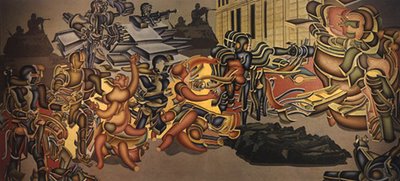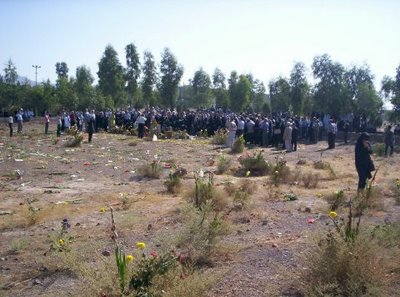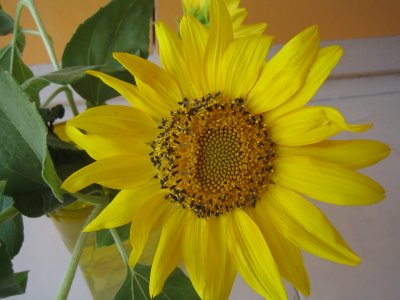Of the very sweet memories of the old days are the nights of Ramadan. During this month, the practicing Muslims fast. The fasting begins with the beginning of lunar month called Ramadan and is ended at the end of it. The people celebrate the ending day –called Eid- and resume the normal life afterwards. During a Ramadan day beginning with the sunrise, ending at the sunset, the people, don't drink, don't eat, don't smoke, don't tell lies, don't curse, don't bother others, etc. Close to the sunset, the happy activities of preparing for Iftar begin. A cloth – we call it 'sofrah'- is spread on the floor or on a table, different kinds of sweets, fresh vegetables and fruit, bread, cheese, honey and date (differs from time to time, family to family) are put on it. A samavor is added to these, boiling and making happy noise for the tea to be served. The people wait for the sunset and Azan- call for the Pray in Arabic sung from Mosques. Those who fast, usually begin the Iftar with a cup of boiling water or a cup of tea and then continue with other foods on sofrah. I never have fasted but I remember I was always more enthusiastic than my mother who usually fasted. I helped her to bring the stuff and was counting the seconds for Azan. Azan just took a few minutes to end, but for me it lasted hours, too long. Ramadan also had its special cookies and sweets. The most famous one cooked and served everywhere in the country was called Zulbia and Bamia. Even the sweets in those days had different taste.
Before the Revolution, the religion was just a part of the life. It was not its whole. Balanced and logical, it occupied the most sincere and pure moments of lives. It was totally different from what it is now. I miss those days.
The pictures show making another sweet of Ramadan called 'Reshte Khoshkar'. This sweet is made in the north of the country but these days you can find it in Tehran too. A mixture of water and starch is poured into this a cone and is poured on a hot tray as you see. The delicate net is cooked and later stuffed with a mixture of sugar and smashed walnut. The whole is dipped into a thick syrup at the end. To see the procedure begin with the bottom of the page please.
.











 Khomeini was the number one and the main responsible for the killings. Based on his fatwa, the trials took place. Regardless of whatever role he had in our contemporary history, his role in killing of the best children of our nation never can be forgiven.
Khomeini was the number one and the main responsible for the killings. Based on his fatwa, the trials took place. Regardless of whatever role he had in our contemporary history, his role in killing of the best children of our nation never can be forgiven.

